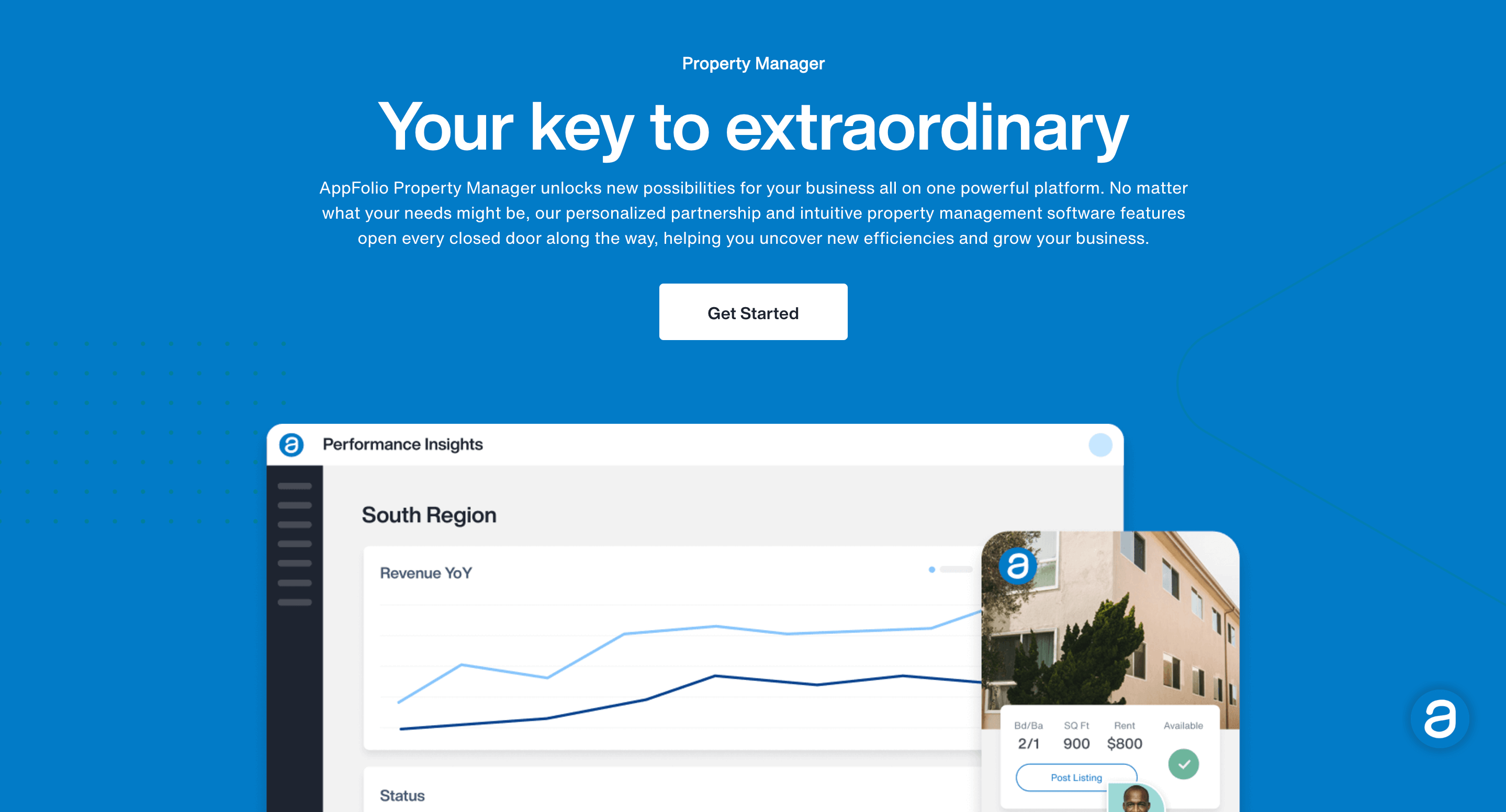Remote or Virtual Property Management is quickly becoming the “new normal.”
This is partly due to constantly evolving and improving technology, allowing more and more businesses to successfully function and operate online. In addition, travel bans and social distancing restrictions have meant that property managers have had to rethink their business models and expedite the implementation of remote property management.
Remote Property Management, as its name suggests, means that property management can be undertaken without the need for an on-site managerial presence. Operating such a management model is not location-dependent and the business can cover all of the U.S property markets from a single base.
For anyone contemplating switching from a standard property management model to a remote model, there are, obviously, various considerations to take into account, so let’s have a look at some of these.
Standard Property Management vs Remote Property Management
Standard Property Management

A “standard property management model” is when property management companies and/or real estate investment firms hire local staff or property managers on a part- or full-time basis to manage properties.
Most of such staff will be based on-site and include maintenance workers or technicians, operational or administrative assistants, cleaners or housekeepers, or even accounting staff such as bookkeepers, etc.
Staff Costs are Higher than with Remote Property Management
Hiring people on-site in the U.S is becoming increasingly competitive and expensive with salaries (including inflation), sign-on bonuses, benefits, insurance, and perhaps medical coverage along with the other extras required to win a candidate over a competitor. Indeed, payroll and related costs comprise a major proportion of expenses for any property management business.
Staff Availability and Geographic Coverage
For property management firms and real estate investors looking to self-manage their properties in an increasingly virtual world, the direct hiring of staff isn’t always practical. This may be due to the availability of suitably qualified staff in certain areas but also scalability.
The ideal headcount for property management firms is based on a number of factors which include rental rates, age/condition of the properties, as well as the systems and processes in place to manage such properties.
In reality, on-site staff can only effectively manage properties within a short drivable distance from their office base. This leads smaller local property managers to quickly max-out their property management business’s growth; they can only manage within their local rental market where they might also be selling homes and have personal connections. Accordingly, property management firms involuntarily limit themselves geographically by managing with an in-person model instead of remotely. Similarly, real estate investors experience the same problems when looking to grow their portfolio.
As a result, opportunities to expand business are missed.
As a workaround, some real estate investors will buy properties across the country and will hire small local property management firms to manage their properties. However, this could lead to hiring firms with less sophistication than they desire, putting their properties at risk of being mis-managed, reducing net operating income and investor returns.
Remote Property Management

This model allows both property managers and real estate investors to manage properties wherever they are located, as opposed to what is “local” or convenient to them. Remote management is often called the “Boots on the Ground” model.
In this situation, it isn’t necessary for the property manager to be in the same city as tenants, property owners, or even the rental property itself. Remote property managers can handle the day-to-day management of a rental property. Lease discussions can be held online with virtual walkthroughs of units for new tenants, and any maintenance required at the properties can be coordinated virtually. Alternatively, if you prefer a local presence, local real estate agents can be contacted to show units in-person and sign leases on your behalf if you are out-of-state.
Other Advantages
Some of the key advantages of remote property management include:
- Overhead costs are reduced in terms of staff costs, occupancy of a physical on-site office, and travel costs going from property to property;
- Virtual staff can be hired from anywhere in the country (or world), meaning that the best talent is available—not just locally available talent; such virtual staff may assist with a variety of responsibilities such as inbound/outbound call management, lease preparation, maintenance request management, vendor research, data entry, scheduling, and so on;
- Response time to requests from residents can be reduced as virtual assistants are online ready to respond and can easily handle issues. Residents don’t realize the person they are speaking with isn’t local;
- Greater efficiencies reduce the overall workload for owners, freeing up more time to drive business growth in their local area as well as new geographical areas only now available given the switch to a remote property management business model;
- Remote work can also result in a less stressful work environment and a better lifestyle for management personnel.
How To Start (Step by Step) – Managing Rental Property Remotely

Build a Trusted Group of Service Providers
To put such a model in place, managers and investors need to build out a strong group of service providers/vendors who can offer 24/7 on-call service in each of the markets where their properties are located. The group needs to include maintenance and repair technicians for the common work orders that are required at properties as well as one or more local real estate brokers to function as leasing agents in that local area; leasing agents can work on a per visit/lease fixed fee, or on a percentage based fee for showing and leasing vacant units.
Once the vendor list is complete, it will be possible to hire a virtual assistant property manager to help coordinate and manage the property. They can also handle other office oriented tasks such as lease preparation, tenant and maintenance coordination, and speaking with property owners about the occupancy status of their properties.
Running property management remotely clearly lowers operating expenses and allows operators to pay one-off fixed fees for service providers as opposed to tying themselves to on-site personnel and the associated costs. These boots on the ground service providers act as the remote manager’s “eyes and ears” when at properties, and as an added benefit, are responsible for their own costs such as getting to and from the various properties. Of course, if the remote manager has various properties further than, say, a 30 min – 1 hour drive from a designated service provider, they might have to extend their coverage by adding other service providers to their current list, or by establishing an entirely new set of boots on the ground to manage such properties.
If you intend on managing or buying properties in a particular geographical area, more often than not, it’s best to engage with larger regional service providers who might cost more but allow you to leverage their extended team for repairs at all of your properties across the region. However, if you only intend on managing or purchasing a handful of properties in a local area (all within a short drive of one another), it could make more sense to build out a list of smaller vendors/contractors that might be more cost-effective.
An Effective Call Management System is Essential
While growing a portfolio of remotely managed properties it’s essential in the early stages of the business to establish a reliable and effective call management system.
Calls may be coming in at all times of the day from various local areas within your region as well as possibly different time zones within the country. The last thing you want is for current and prospective landlords, tenants, and service providers to be having a hard time connecting with your team. Lost connections mean lost opportunities!
Having a great system including a business phone number with a properly set up and functioning phone tree as well as business emails with your domain name, presents professionalism to your key stakeholders and builds trust in your brand.
Virtual Phone Providers

There are a variety of phone providers who can supply an appropriate system and some of the better known ones include: DialPad, Grasshopper, Ooma, all of which allow you to set up phone trees (dial 1 for leasing, dial 2 for maintenance, dial 3 if you are a property owner and so on) and route calls directly to yourself, your virtual assistant, or your service providers.
During normal office hours phones can be manned by your virtual assistant, whereas outside of office hours it’s possible to set a 24/7 emergency call center service (pay by the minute) or direct call to your chosen 24/7 on-call service provider.
24/7 Call Centers – Not The Solution For Everything

Instead of hiring a virtual assistant, some property managers and real estate investors make the mistake of trying to use a 24/7 call center to help them manage their properties, however, what they don’t realize is that the solution call centers provide doesn’t solve their direct problem, taking work off of their plate! Call centers typically only answer inbound calls and take messages, then they will either email or text that message to you.
At the end of the day, follow-up on calls or messages is still required which doesn’t ultimately save you time or money because you still have to do the work. One might say that the benefit of the 24/7 call center is that they always pick up, even if it is after hours. However, if someone picks up and takes a message but there is no one available to take action on that message, then the call center service isn’t worth very much. On the other hand, a virtual assistant property manager receives inbound calls, takes a message, then coordinates with service providers, property owners, etc. as needed to complete the task at hand. A virtual assistant actually gets work done and helps you build and run a better business; 24/7 on-call maintenance companies can be hired for emergency coverage after-hours.
service isn’t worth very much. On the other hand, a virtual assistant property manager receives inbound calls, takes a message, then coordinates with service providers, property owners, etc. as needed to complete the task at hand. A virtual assistant actually gets work done and helps you build and run a better business; 24/7 on-call maintenance companies can be hired for emergency coverage after-hours.
Property Security
Irrespective of whether a property is managed with on-site personnel or remotely, security remains an important management item for property managers. Security of the tenants and their possessions but also of the physical property itself. The premises have to be free from theft, fire, or water damage caused by accidents.






